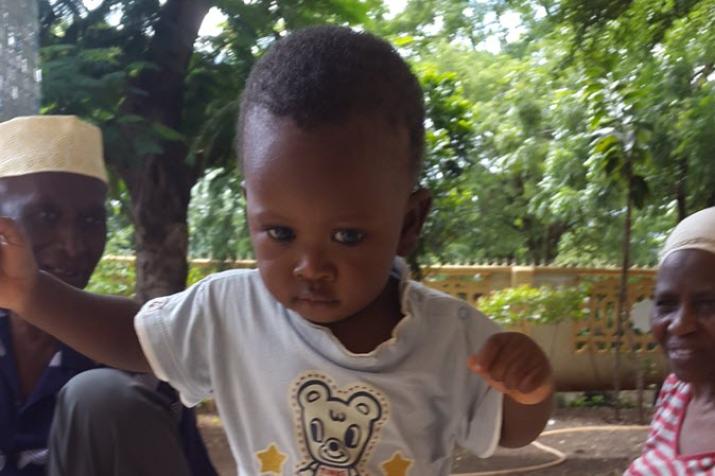
Walking in my shoes? Maybe it's time I walk in theirs.
Published May 28, 2015, last updated on April 7, 2020 under Voices of DGHI
I have been struggling to commence my blogging for about three weeks now. As many reading this would know, it is very easy to get caught up in the routine of settling down, getting to know the culture and finding your place in a project. I am currently in the small town of Moshi, Tanzania, unearthing the experiences of women with obstetric fistula, hoping to learn from them and be able to provide the appropriate context when conducting my qualitative analysis.
However, before I begin with the experiences directly related to the study, I think it would be a grave error on my part to not talk about what I have come to know as Tanzanian Hospitality. I am currently staying in a village outside of town with a local Tanzanian family. My host family consists of a retired nurse from Kilimanjaro Christian Medical Centre (KCMC, the major hospital in Moshi), her husband, their son and his wife and their baby boy. The family also has two house girls and a house boy to help around the house, so it is safe to say that it is a pretty full house at all times of the day.
When I first arrived in Moshi, I was hesitant and wary. I knew little to no Swahili (Asante all the way?) and had never been to any part of Africa before. I was greeted at the airport by my host mother who hugged me twice (as per the custom) and then, together with her brother in law (who is also a taxi driver), we proceeded to make the hour long ride to her house. At her house I was greeted by her entire family, all of whom had a considerable command over the English language. Later, I was greeted by the house staff in Swahili (Karibu!) to which, after the not-so-subtle prompting by my host mother, I meekly replied “Asante”.
The next few days, or I might say the next few weeks, were a whirlwind of adventure and activity. I started going to KCMC from the very next day, taking two dala-dalas to and from work. To those who do not know what a dala-dala is, they are packed, spilling with people mini-vans which are a common way of transport in Tanzania. Travelling on them is an adventure in its own right, where each experience brings forth a new kernel of knowledge with regards to the Tanzanian culture. I discovered the over-used word “mzungu” that I would hear multiple times during my eventful journey meant me (well more accurately a white person) and the dala-dala could not be deemed “to capacity” until every inch of the van was occupied, be it by sitting, standing, twisting, standing on one leg or sitting in someone’s lap. However, I also discovered that many people here possess within them an intrinsic kindness to help and guide. Their delight upon hearing my hesitant “Asante” to their “Karibu!” would make me smile even when I least wanted to and their raucous arguing with the conductor for his daring to try over-charging the mzungu would often even coax a laugh from me. It was something that I had not expected but now has become an intrinsic part of my Tanzanian experience.
Furthermore, my description of what I have been experiencing will not be complete without a description of my life with my host family. From the first day, the family has been open and welcoming, often drawing me out through conversation, finding Bollywood movie channels or stocking the fridge with Coca-Cola upon accidentally discovering my love for it. However, what has actually been the most invaluable experience of my stay in their home has been my interaction with the house staff. The house staff here in this household is unlike any other that I have seen. The house staff here is like their family. Their status is that of employees, yet the courtesy with which they are treated and the equality that they have in this culture is something I have never experienced before. It is really hard for me to articulate how humbling this interaction has been because of my own experiences in Pakistan where, although the house staff is treated with courtesy, they are always kept separate from the employing family. They eat separately and always after the family, sit separately and often keep very separate lives. However, here in Tanzania, they are literally family. They often eat before or with the family, sit with the family and participate actively in everything going on in the house. They do the work they have been assigned yet are still partners in everything else. This kind of equality within different socio-economic classes is something I have never witnessed while exploring the developing world and I deeply admire and respect it. It is something that has had a tremendous impact on the way I think and the way I am viewing the Tanzanian culture. It is something to learn from and I hope to do just that.
With this ambitious goal, I think it is now time to conclude this entry. I know I have not talked about the women I am working with here, but I believe that it was essential to set the preliminary scene. Hopefully my next entry would allow me to cover that and much more.


